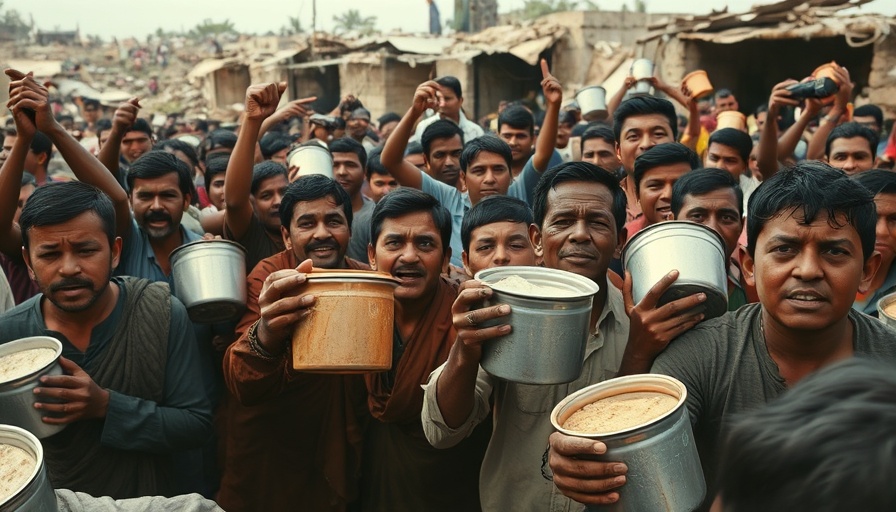
A Trickle of Hope: Humanitarian Aid Arrives in Gaza
For the first time in 2.5 months, Gaza has begun seeing a trickle of humanitarian aid allowed in by Israel, following intense pressure from international allies. Prime Minister Benjamin Netanyahu confirmed the easing of the blockade as part of efforts to sustain support for Israel’s ongoing military offensive against Hamas. However, the scale of aid is far from sufficient, leading to urgent calls for a more comprehensive solution to the humanitarian crisis.
The Severity of the Humanitarian Crisis
The blockade had left the over two million residents of Gaza severely restricted; reports indicate that food supplies were running critically low, pushing many to the brink of starvation. According to the Integrated Food Security Phase Classification, nearly 500,000 Palestinians are facing possible famine, while approximately one million others struggle to secure adequate food.
Prior to this easing of the blockade, aid trucks, which typically delivered around 600 loads daily during temporary ceasefires, had dwindled to just five since the blockade was initiated. The United Nations and various aid organizations have expressed their gratitude for the shipment but unequivocally stated that what has been provided is wholly inadequate to meet the pressing needs of the Gazan population.
International Response and Pressure
In response to the ongoing humanitarian disaster, the United Kingdom, France, and Canada—key allies of Israel—have described the aid currently being allowed into Gaza as “wholly inadequate.” They have hinted at the possibility of “concrete actions,” which could include sanctions aimed at Israel over its military operations in both Gaza and the occupied territories.
This international pressure is coming at a critical time; experts warn that if the blockade continues, the humanitarian situation may worsen dramatically. Countries calling for a more robust response know that the humanitarian needs far exceed what Israel has currently permitted.
Why is the Blockade in Place?
Israel's blockade has been a contentious issue, cited as a necessary security measure to limit the flow of materials that could potentially be used for military purposes by Hamas and other groups within Gaza. However, the humanitarian cost of this approach has become a focal point for international criticism, with many arguing that the lives of civilians should not be sacrificed in this persistent conflict.
With ongoing military operations and the precarious political situation, the question arises: how can a balance be struck that ensures the safety of Israel while allowing for humanitarian relief to reach those in desperate need?
Looking Ahead: What Are the Consequences?
The future of Gaza remains uncertain as the international community contemplates the effects of the recent easing of the blockade against the backdrop of a military campaign. Although the recent entry of humanitarian supplies offers a glimmer of hope, it is evident that more systemic solutions are required. Continuous monitoring and commitment are needed from both local and international parties to ensure that humanitarian crises do not exacerbate and escalate into broader conflicts.
As the world watches closely, future discussions around military interventions, humanitarian needs, and diplomatic relations will be crucial in forging paths forward that prioritize human rights and dignity amidst the chaos.
 Add Row
Add Row  Add
Add 




 Add Row
Add Row  Add
Add 

Write A Comment